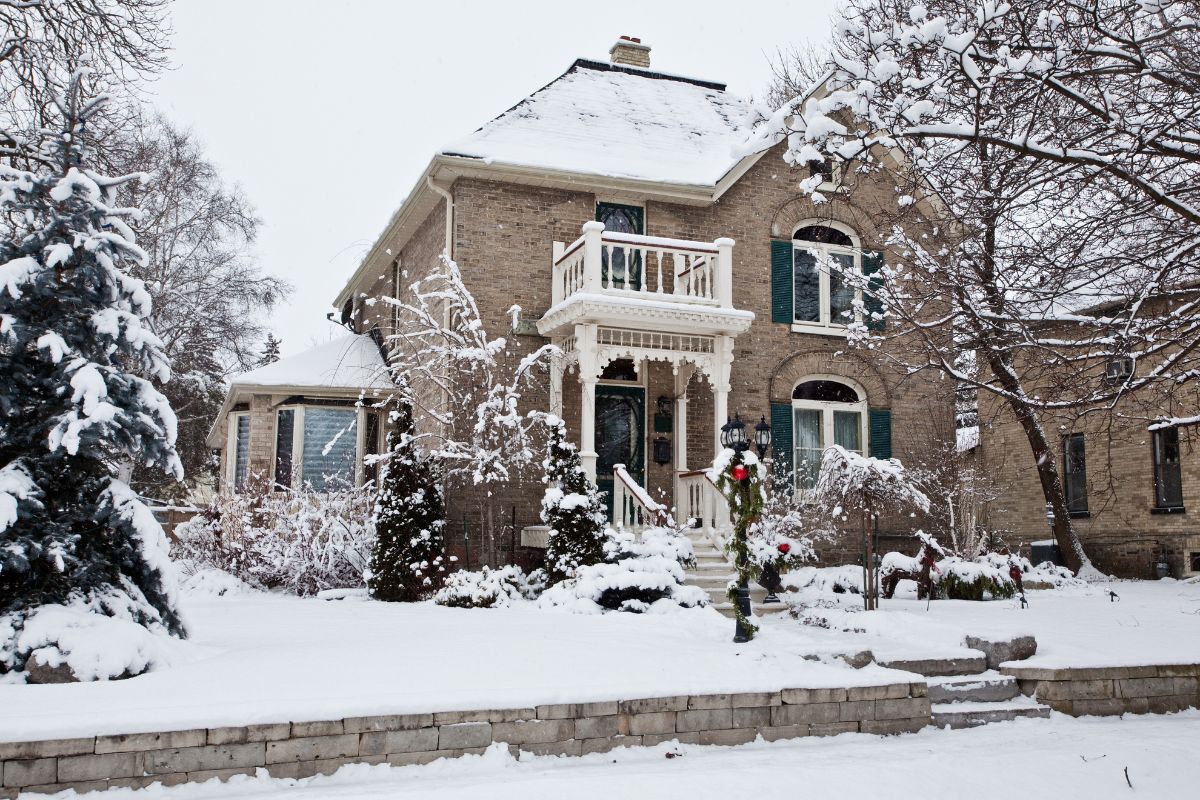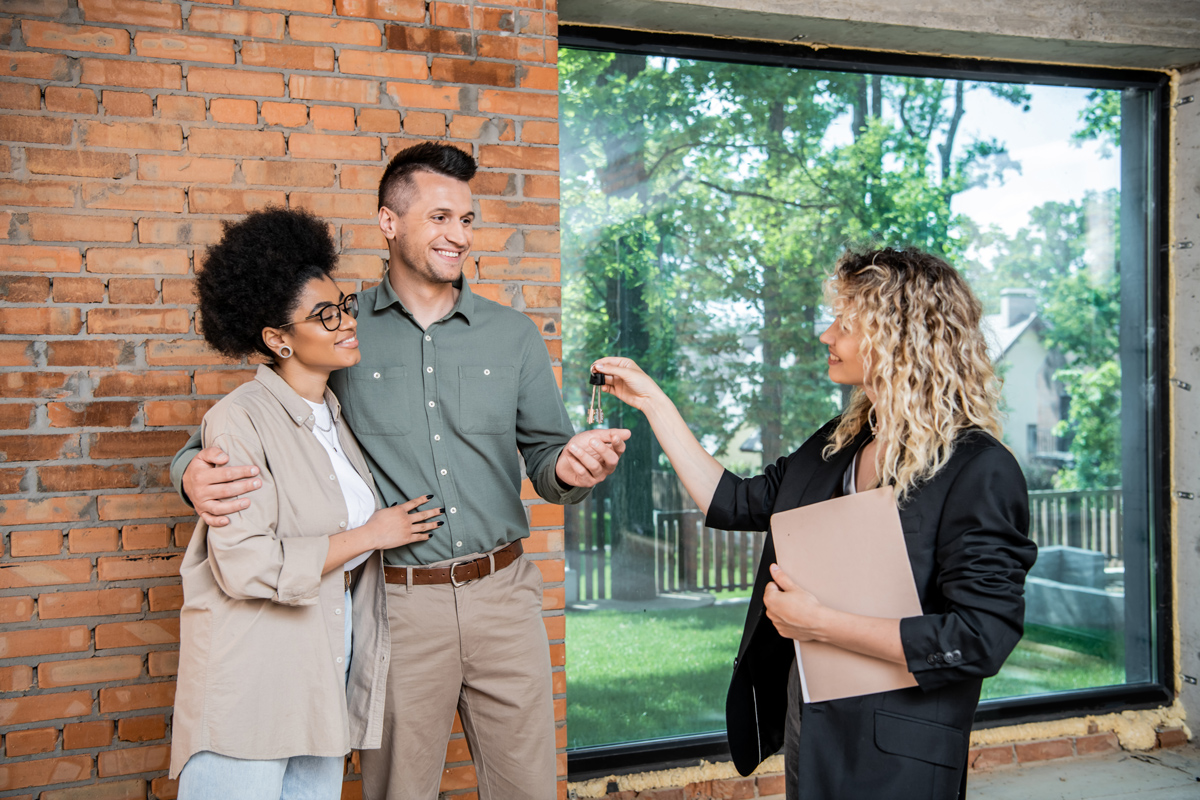The holiday season is right around the corner, and with it comes chilly winds, snow-covered streets, and the cozy vibes of winter in Illinois! If you’re a new homeowner and this is your first winter in Illinois, you may be unsure of how to get ready for the weather.
Illinois winters are known for snow-covered streets, icy roads, and freezing temperatures. According to the Centers for Disease Control and Prevention (CDC), over 400 people in the U.S. lose their lives each year to accidental carbon monoxide (CO) poisoning, often due to improper home heating. Whether it’s keeping pipes from freezing, preventing expensive heating bills, or making sure your furnace is running safely, a little preparation today can make all the difference tomorrow.
Preparing for the season doesn’t have to be overwhelming—23 Legal is here to help! By following our tips, you can save money, ensure your family’s safety, and enjoy the cozy comforts of winter without unnecessary stress. So grab a cup of cocoa, settle in, and let us walk you through how to prepare your home for the season ahead. Together, we’ll make sure your home is ready to weather the Chicago cold with ease…
Why Do You Need to Prepare Your Illinois Home for the Change of Season?
Illinois winters are not just cold—they’re unforgiving. With temperatures dipping below freezing and heavy snowfalls, your home needs to be ready to withstand the elements. Preparing your property is not just for convenience; it is about safeguarding the property and guests in the household.
Try to picture yourself waking up to a frozen pipeline that has burst during the night or waking up to a roof that has been damaged by the accumulation of snow on it. These are definitely costly issues that a homeowner would wish not to deal with, however, they are root causes of lack of sufficient planning. High energy bills may also only serve as an added burden during the holiday season when warm air leaks from drafts or poorly insulated areas. Even worse, winter comes with cold and damp weather which can pose big challenges such as mold growth or poor air quality that have adverse effects on the health of the family members.
That is why if the homeowner has not winterized their home it can cause problems such as frozen pipes, damaged roof, high energy costs, or issues with drafts or mold. Alternatively, preparation helps homeowners incur less expense, undertake fewer repairs, and keep the family warm and safe until spring.
What Does It Mean to “Winterize” My Home?

Winterizing your home involves taking proactive steps to protect it against the challenges of cold weather. This also involves issues like roof sealing, insulating some spots in the building, and checking that your heating systems are in good working order. Think of it as giving your home a winter coat—it’s all about maintaining warmth, preventing damage, and ensuring your property functions smoothly through the season.
Benefits of Preparing Your Home for Winter
The Positives:
- Lower Energy Bills: Sealing drafts and insulating properly can cut your heating costs significantly.
- Prevent Damage: Prevent the expenses for water damage, pipes bursting, roof damage, and HVAC system failure.
- Increased Comfort: Safely and comfortably regulate the temperature throughout your house without having to concern yourself with drafts or hot and cold spots.
- Peace of Mind: This way you know that your home is safe from the harsh weather conditions hence you can also enjoy the holidays stress free.
The Negatives if You Don’t Prepare:
- Frozen pipes that burst, causing water damage.
- Roof failure and leakage problems due to the accumulation of ice on rooftops.
- Lack of efficient heating that results in extremely high heating costs.
- Problems related to drafts, mold, or poor air quality that affects the health of the people living in the building.
23 Legal’s 10 Steps to Prepare Your Home for an Illinois Winter
1. Inspect and Seal Drafts
Tip: Look for the air leaks around doors, windows or around any attic spaces.
How-to: If the day is windy just swipe your hand close to the frames of windows and the doors to feel the draft. Close gaps in doors and windows which can be done by weatherstripping, caulking or applicable foam tapes. One can advise making additional blinds during very cold periods by putting storm windows or using plastic on the windows.
Why: Sealing drafts helps save energy, regulate bills, and promote warmth in your home. One can argue it is a very basic yet efficient approach to increasing one’s fuel stock and optimizing the energy use.
2. Check and Maintain Your Heating System
Tip: Schedule a professional HVAC tune-up before winter hits.
How-to: Check several pipes, clean different vents and test the thermostat, and replace air filters. It is advisable to make a call to a professional for checking furnaces, boilers or a heat pump to ensure that they are in proper working conditions. For fireplaces and wood-burning stoves, ensure chimneys are clean and free of creosote.
Why: There is nothing as devastating as fires breaking out in the house especially during the cold season, and heating systems are known to be the major cause. Regular maintenance reduces the risk of malfunctions, ensures safety, and keeps your home warm during freezing temperatures.
3. Insulate Critical Areas
Tip: Focus on attics, basements, and crawl spaces.
How-to: Add insulation to walls and ceilings, and wrap exposed pipes with foam sleeves. Consider switching to energy-efficient windows.
Why: Insulation prevents the cold air from getting into your room and prevents warm air from escaping hence preventing bursting of pipes and conserving energy. It also serves in combating formation of ice dams that results in a lot of damage inside buildings.
4. Protect Your Pipes from Freezing
Tip: Insulate pipes and ensure a continuous water flow during the cold period.
How-to: Turn off the outdoor hoses, drain water from the sprinkler systems, and leave the tap water running during the freezing weather. Use heat tape or pipe insulation where needed.
Why: Water supply pipes and other connected structures may freeze and burst—basic precautions can help you garner huge amounts for pipe repairs.
5. Clean Your Gutters and Check the Roof
Tip: Clean up leaves, debris and ice build-up on the roof.
How-to: Clean out your gutters with a ladder or hire someone to do it for you. Walk around your house and look for signs of lost or broken shingles in the roof area.
Why: Clear gutters prevent ice buildup, which can lead to leaks and structural damage. A strong roof protects your home from snow and rain.
6. Test Smoke and Carbon Monoxide Detectors
Tip: Old batteries must be replaced and alarms checked monthly.
How-to: Press the “test” button on each detector to ensure it’s working. Replace units older than 10 years.
Why: Use of heating equipment in the winter months exposes them to higher hazards such as fire disasters and Carbon Monoxide poisoning. You will want to have functional detectors specifically for your family’s safety.
7. Prep Your Outdoor Spaces
Tip: Protect your yard and equipment which are used outside.
How-to: Store patio furniture, cover your grill, and bring delicate plants indoors. Apply salt or sand to walkways to prevent ice buildup.
Why: Protecting outdoor areas prevents damage from snow and ice, saving time and money in the spring.
8. Reverse Ceiling Fans
Tip: Set fans to rotate clockwise in the winter.
How-to: Flip the switch on your ceiling fan to reverse its direction. This forces the warm air to be forced down into the room.
Why: It’s a very simple trick of making rooms warmer during winter without having to turn on the heater.
9. Stock Up on Winter Essentials
Tip: Be ready for emergencies.
How-to: There should be a power source with flashlights, blankets, batteries, and a first-aid kit in each-household. People should also stock on salt, shovel as well as snow blowers for purposes of clearing the snow.
Why: It is crucial if you do not want to be defenseless during a power outage due to extreme weather. It helps to be prepared for any given circumstance and therefore keep the family secure and cosy always.
10. Check Insurance Coverage
Tip: Review your homeowners’ policy for winter-specific risks.
How-to: Discuss with your agent about protection from freezing pipes, roof or any snow related concerns.
Why: It is comforting to be sure nothing, especially the unlucky winter mishaps, will harm you or damage your car.

Wishing You a Warm and Cozy Holiday Season!
Preparing your home for an Illinois winter doesn’t have to be overwhelming. By following these simple steps, you’ll not only protect your property but also enjoy a warm, safe, and stress-free season. From all of us at 23 Legal, we wish you a cozy and joyous holiday season in your home.
If you’re unsure about any aspect of winterizing your property or need legal assistance with home ownership issues, Attorney Ben Weaver and the team at 23 Legal are here to help. Contact us today to safeguard your home and investment for the season and beyond!
Accomplish your real estate goals with 23 Legal: (847) 447-6004
Why Choose 23 Legal
23 Legal offers Real Estate and Estate Planning legal services to individuals, families, community associations and small business owners throughout Chicagoland. We know how intimidating “the law” can be. In fact, when most people think of law offices, they think of stuffy leather chairs, huge wooden desks and pompous lawyers who charge outrageous fees. That’s not us! We believe in 1-to-1; the same lawyer should work with you all the way through. Whether you have an estate planning issue, family trust concern, or you have a legal problem in regard to a new home, business, real estate or remodel, you need a lawyer who cares. That’s where Ben comes in! We are great listeners; more than that, we are lawyers who believe that our clients always come first.



